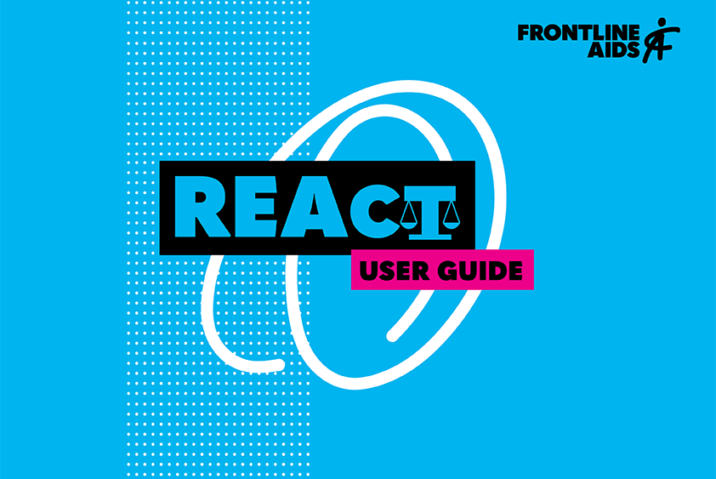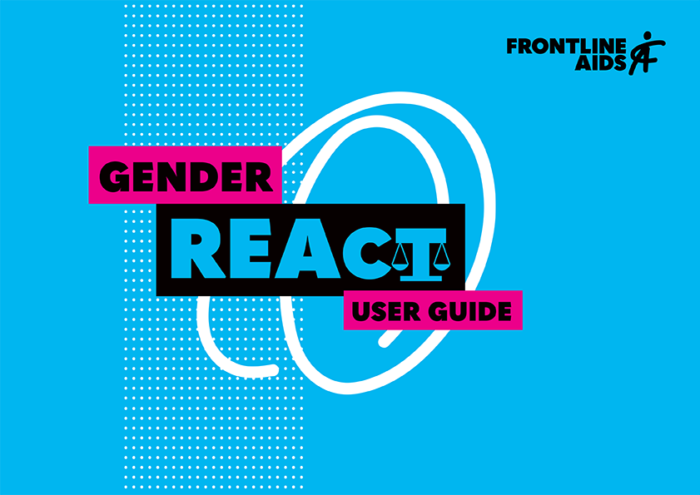Human rights violation tool (REAct)
 © Gemma Taylor for Frontline AIDS
© Gemma Taylor for Frontline AIDS
The Rights – Evidence – ACTion (REAct) tool has been developed to record, monitor, and respond to human rights violations that happen when people access HIV and health services.

WHY THE PROGRAMME IS NEEDED
Increasing stigma, discrimination and criminalisation of people living with HIV and other marginalised communities is happening in many places. In response, we developed REAct, a human rights monitoring and response system that allows community-based organisations (CBOs) to record and manage information about violations.
REAct is a powerful tool for gathering the evidence needed to advocate for change. It is important because each documented case adds to a growing body of evidence, shining a light on hate crimes that often go unheard.
Unlike other human rights monitoring systems that simply collect data on human rights violations, REAct also provides referrals to support, such as individual crisis responses and human rights-based HIV programmes.
WHAT THE PROGRAMME IS DOING
Community organisations can use REAct to record data about human rights violations; provide and refer people to health, legal and other public services; and use this data to inform human rights-based HIV programming, policy and advocacy at national, regional and global levels.
Trained staff (known as REActors) from the community organisations gather information from their clients on the specific issues they face – from police abuse to inequitable health care, from gender-based violence to denial of property rights, and from prejudiced media coverage to discriminatory employment practices. REActors are usually members of the community who also work as peer educators and outreach workers.
The collective work of the REActors recording cases of human rights violations also contributes to:
- Improving the local response to individual emergencies
- Influencing change in communities and services that perpetuate rights abuses
- Informing human rights based HIV programming, policy and advocacy
- Identifying community needs relating to human rights and HIV programming
- Supporting civil society source funding to continue this work
HOW AND WHERE THE PROGRAMME IS WORKING
Community organisations in countries across the world have used REAct including: Bangladesh, Botswana, Burundi, Egypt, India, Kenya, Lebanon, Lesotho, Malawi, Mozambique, Myanmar, Namibia, Nigeria, Senegal, South Africa, Sudan, Eswatini, Tunisia, Uganda, Yemen, Zambia, and Zimbabwe – with growing interest from many others.
REAct can also be adapted to record human rights related abuses in hepatitis C, sexual and reproductive health (SRH) services, harm reduction interventions for people who use drugs, and others.
REAct was developed by Frontline AIDS, drawing on the experiences of partner organisations from a wide range of countries globally. This work continues with financial support from the Elton John AIDS Foundation, the Global Fund and UNITAID.
USER GUIDE AND KEY RESOURCES
REAct user guide
Gender REAct user guide




